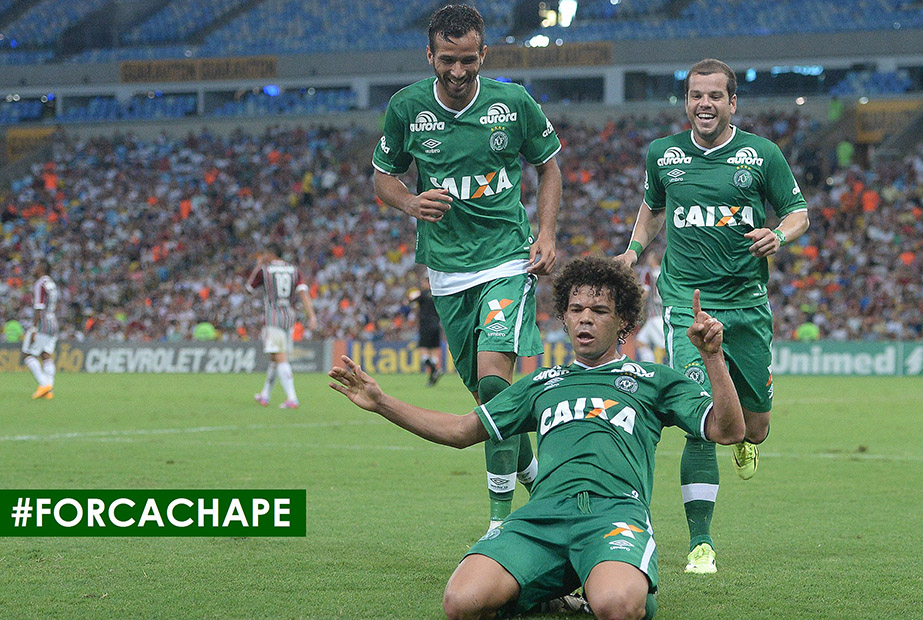
We will be observing a minute of silence before kick-off to pay our respect to Chapecoense. We will also be providing black bands to all those who come for the screening in light of the same,” announced a group of Arsenal supporters in India a few months back after the world was shaken by the loss of the Brazilian football team.
Chapecoense had won a place in the finals of the 2016 South American Cup, which was scheduled to kick off on the 30th of November, but on the 28th November 2016, the plane that was carrying the team to Colombia for that finals, crashed just a few kilometres before touching down in the city of Medellin. Seventy one people died in that crash. Nineteen of them were first-team players and the coaching staff who had hoped they could return to Brazil triumphant.
Goalkeeper, Danilo, initially survived the crash, but later succumbed to his wounds in hospital, mere moments after he’d said a tearful last goodbye to his wife over the phone. His teammate, Jakson Follman, also survived, but will never play football again as one of his legs had to be amputated. Only one of Chapocoense’s players survived the crash along with three players who had remained in Brazil. They are all that remain of the club’s first team.
But in Chapocoense’s hour of greatest need, football clubs the world over responded with true sporting spirit and brotherhood, reminding us that though football may be an increasingly competitive, cutthroat sport, it is an even stronger uniter.
After the crash, across the Atlantic Ocean, Arsenal defender Gabriel Paulista was given a scarf in the green of Chapocoense as his teammates took to the field against Southampton, only a few hours after the news had filtered through. Both teams observed a minute’s silence as the Brazilian raised the scarf in silent tribute. The 26-year-old had played under Chapocoense coach Caio Junior, and was unable to contain his emotions, breaking down in tears as he spoke to the press after the game.
Closer to home, directors of five Brazilian clubs — Coritiba, Corinthians, Palmeiras, Portuguesa, Santos, and Sao Paulo pledged to help Chapecoense out with players, and successfully petitioned the Brazilian FA to make sure the club would not be relegated from the top flight for the next three years.
Both the Brazilian and Argentine football federations have offered to lend players to the club for free, to help them rebuild their shattered team, while Atletico Nacional, who would’ve been their opponents in that final, wrote to South America’s football federation to award the trophy to them, as a gesture of solidarity between the two clubs. The federation officially declared Chapecoense the winners of the Copa Sudamericana.
The outpouring of sympathy and compassion that has come the way of Chapocoense is very similar to what happened the last time such a tragedy struck the sporting world on the 6th of February, 1958, when 23 Manchester United players died when their plane failed to take off from Munich airport.
Goalkeeper Harry Gregg was among the handful of players who survived that ordeal, both physically and mentally.
“When the story broke I asked my wife if I could sit alone in the television room as I did not want anyone with me,” he recalls. “I wanted to watch it but with no family in the same room with me, because I didn’t know what way to react. It’s very, very difficult to describe, I cannot describe the sensation of watching it.”
That crash not only derailed their title ambitions that year but also virtually destroyed the nucleus of what promised to be one of the greatest generations of players in English football history.
It would take 10 years for the club to recover, with manager Matt Busby rebuilding the team and winning the European Cup in 1968 with a new generation of players. That wound may have hurt the club deeply at the time, but it has since made them stronger, and today, Manchester United the world over is a name associated with determination and success. Perhaps the same will be true of Chapocoense.
In the wake of tragedy, true sportsmanship, and the true spirit of the game shines through the darkness as winning is put aside in the name of fraternity, not out of sympathy, sadness or pity, but simply because it is the right thing to do. —[email protected]